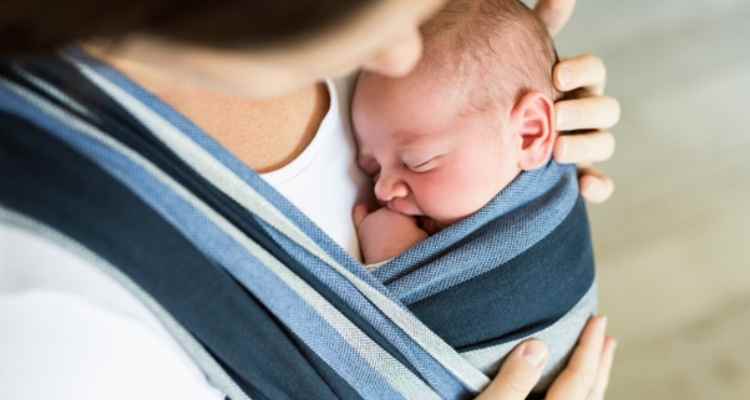When you’re pregnant, you’re inundated with information about your baby, labor and delivery, and how you should care for your baby once you get them home. But one thing no one seems to talk much about? Postpartum recovery.
Once your baby arrives, most people seem to forget about mom, but she’s just gone through nine months of pregnancy culminating in a vaginal delivery or major abdominal surgery.
No matter how in shape you are or how easy your pregnancy was, the postpartum period can be a difficult time. What can you expect during your recovery? Read on to learn more about the postpartum recovery timeline and what you can expect.
One Week Postpartum
The first week after having your baby is often a blur of short spurts of sleep, feeding a newborn, and wondering what day it is. Babies are born with their days and nights mixed up and often want to snooze all day and party all night. They also eat around the clock, so whether you’re nursing or using formula, feeding that new baby takes up a lot of your time.
At the same time, you’re trying to adjust to life with a new baby, your body is also trying to recover. Recovery after birth is no joke.
If you had a vaginal birth, you’ll still be experiencing quite a bit of vaginal bleeding during the first week after your baby is born. If you tore and had to have stitches, your vagina may be very sore, and using the restroom may be a challenge.
If you had a C-section, you might have pain at your incision site and difficulty moving around.
Your hormones may be all over the place and you might find yourself suffering from the “baby blues” which often happen in the first few days after delivery and go away on their own within a week or two. The baby blues are due to the wild fluctuations in hormones and are different from postpartum depression or anxiety.
Take it easy on yourself and take advantage of as much help as you can from your partner, friends, or family.
Two Weeks Postpartum
You will likely start feeling better in week two. If you had a vaginal delivery, you may notice the bleeding starting to taper off, but you will likely still have enough bleeding to require a pad. Many women experience bleeding for 4-6 weeks after a vaginal delivery.
If your stitches are starting to itch, that’s a good thing. That means you are starting to heal (don’t worry—the stitches will disintegrate, and you won’t have to have them removed).
If you had a C-section, you may also start feeling more like yourself and have an easier time moving around. Your incision is likely healing and your sutures may also itch. This is also a good sign.
You may still be experiencing the baby blues during week 2, as these can last for a few days to a few weeks. Being in tune with your mental health and knowing when to ask for help is important for both you and your baby.
Six Weeks Postpartum
Most doctors will have you come to the office for a 6-week follow-up appointment. They will check your uterus to make sure it has returned to its normal size, check your scar if you had a C-section, and check to make sure any tears have healed. Many doctors will also clear you for exercise and sexual activity, as long as your recovery has been on track.
It’s likely that your bleeding has stopped, but it may restart temporarily. Women who had a C-section are often cleared to drive and lift heavier things after this appointment.
Your doctor also may do a postpartum depression/anxiety screening. Be honest with your responses to these questions. If you are feeling depressed or anxious, tell your doctor. Medication and therapy can help you address any postpartum mental health issues.
Six Months Postpartum
By this point, your bleeding has stopped, your incision has healed, and while you might be exhausted, your body may be feeling somewhat back to normal.
You’ll also notice other changes. Your period may come back (this might happen sooner or later, depending on whether you are breastfeeding or not). You might also notice that your hair stops falling out so much and you start to get regrowth along your scalp and hairline.
It is possible to develop postpartum depression or anxiety months after giving birth, so remaining in tune with your mental health and asking for help when needed is important, even 6 months postpartum.
One Year Postpartum
One year after you deliver your baby, your body should be mostly back to normal, although “normal” might be a little bit different than it was pre-pregnancy. You may be still carrying some of your pregnancy weight (or even if you lost it all, your body may look different), you are probably experiencing hair regrowth, giving you the look of tiny baby hairs along your hairline, and you might look a bit more tired than you did before having a baby!
You may still be experiencing vaginal changes, such as reduced sensation, dryness, and incontinence or leaking urine when you laugh, jump, sneeze, or cough. Vaginal rejuvenation can help address these issues.
Postpartum Recovery Timeline: Know What to Expect
Instead of just focusing on “what to expect when you’re expecting,” as so many books want to tell you, use this postpartum recovery timeline to get an idea of what you can expect as you recover after giving birth. Both pregnancy and the postpartum period bring many changes to your body, so be patient and know that eventually, things will return to normal.
If you found this post useful, why not share it with an expectant mom that you know? Be sure to come back for more on postpartum life!

